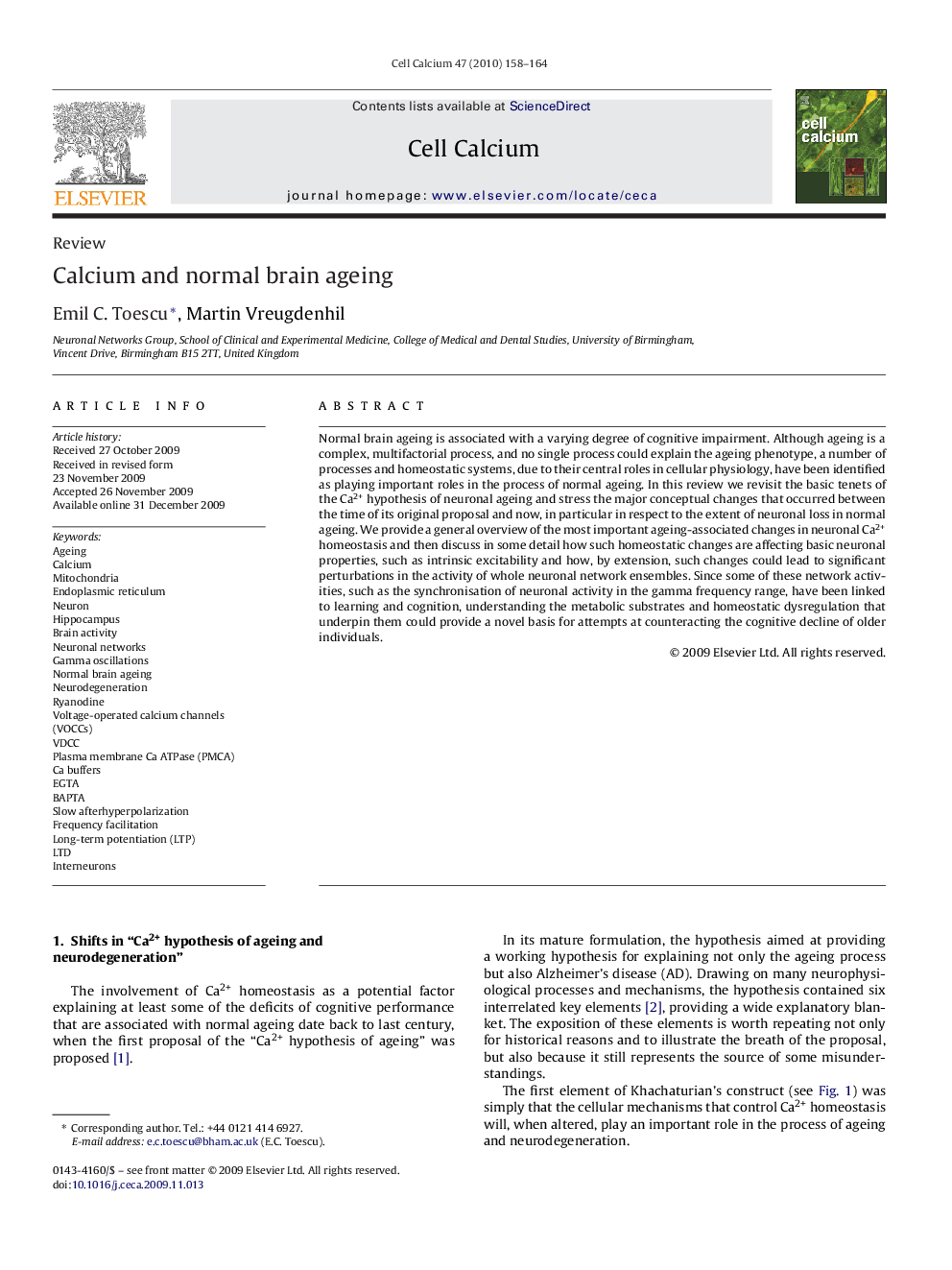| Article ID | Journal | Published Year | Pages | File Type |
|---|---|---|---|---|
| 2166345 | Cell Calcium | 2010 | 7 Pages |
Abstract
Normal brain ageing is associated with a varying degree of cognitive impairment. Although ageing is a complex, multifactorial process, and no single process could explain the ageing phenotype, a number of processes and homeostatic systems, due to their central roles in cellular physiology, have been identified as playing important roles in the process of normal ageing. In this review we revisit the basic tenets of the Ca2+ hypothesis of neuronal ageing and stress the major conceptual changes that occurred between the time of its original proposal and now, in particular in respect to the extent of neuronal loss in normal ageing. We provide a general overview of the most important ageing-associated changes in neuronal Ca2+ homeostasis and then discuss in some detail how such homeostatic changes are affecting basic neuronal properties, such as intrinsic excitability and how, by extension, such changes could lead to significant perturbations in the activity of whole neuronal network ensembles. Since some of these network activities, such as the synchronisation of neuronal activity in the gamma frequency range, have been linked to learning and cognition, understanding the metabolic substrates and homeostatic dysregulation that underpin them could provide a novel basis for attempts at counteracting the cognitive decline of older individuals.
Keywords
Related Topics
Life Sciences
Biochemistry, Genetics and Molecular Biology
Cell Biology
Authors
Emil C. Toescu, Martin Vreugdenhil,
